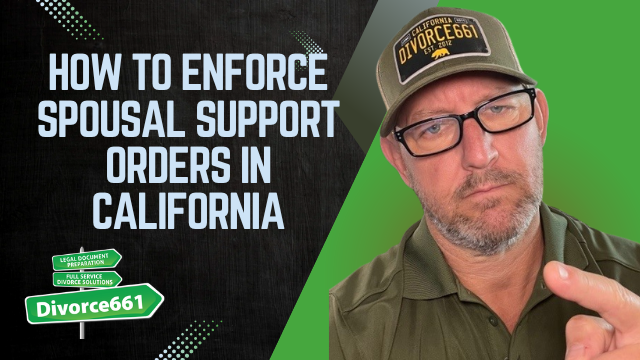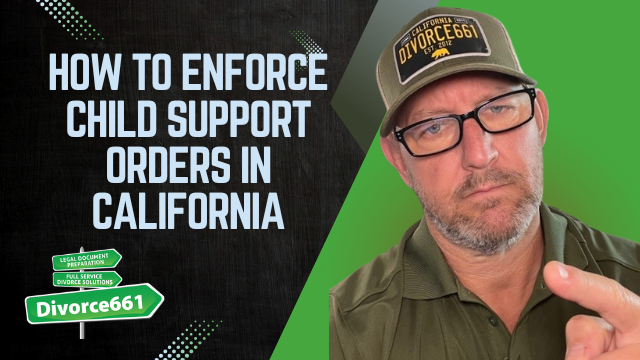How to Enforce Spousal Support Orders in California
If you have a court-ordered spousal support obligation that is not being paid, California law gives you several tools to enforce the order and collect what is owed. Below I explain the practical options, the typical enforcement process, and how to move from missed checks to steady payments.
When to seek enforcement
Do not delay enforcement if spousal support payments stop. Whether the nonpaying spouse lost a job, changed employers, or is simply refusing to pay, a court-ordered support obligation carries legal weight. If the order exists and payments are missed, you can file a request to enforce the order with the court that issued it.
The court has a number of remedies to make sure support payments are made. Common enforcement tools include:
Wage garnishment or wage assignment
The court can issue a wage assignment that requires the payer’s employer to deduct support payments from wages and send them directly to you. This is often the most reliable way to restart regular payments once the payer has new employment.
Interest on unpaid amounts
California can allow interest to accrue on unpaid spousal support arrears. This increases the amount the payer owes and provides a financial incentive to resolve arrears quickly.
Contempt of court
If the payer willfully disobeys a court order, the court may hold them in contempt. Contempt remedies can include fines, attorney fees, and in extreme cases, jail. Contempt is typically used when other enforcement measures have failed or when nonpayment is willful.
Other collection tools
- Bank account levies and liens against property
- Seizure of assets where appropriate
- Coordination with the Department of Child Support Services if a child support case also exists
Step-by-step enforcement process
While every case has its own facts, the typical steps to enforce a spousal support order are:
- Gather documentation: the court order, records of missed payments, bank statements, and any communication about nonpayment.
- File a request to enforce the spousal support order with the court that issued the order. This starts the enforcement process.
- Ask the court to issue a wage assignment or other collection remedy. The court will review the request and can order immediate withholding from wages.
- If necessary, request interest on arrears and pursue a contempt hearing if the payer is knowingly refusing to comply.
- Follow up with the court and the payer’s employer until payments resume or the matter is resolved.
What you should bring to court
- A copy of the spousal support order
- Proof of missed payments such as canceled checks, bank statements, or payment records
- Information about the payer’s employment and income if available
- Any correspondence or evidence showing attempts to collect payments
Real client example
One recent case highlights how enforcement works in practice. A client stopped receiving spousal support after their ex lost a job and later started working for a new employer. We filed enforcement paperwork with the court requesting a wage assignment. Once the court issued the wage assignment to the new employer, payments resumed automatically and the arrears began to be collected. That kind of outcome is common when the court is asked to intervene early and decisively.
How we can help
Enforcing a support order involves paperwork, correct forms, and sometimes hearings. We help by preparing and filing the enforcement documents, requesting wage garnishments or wage assignments, calculating interest on arrears, and coordinating with agencies like the Department of Child Support Services when appropriate.
If you are not receiving the spousal support the court ordered, visit divorce661.com and schedule a free consultation. We can review your order, explain the enforcement options available, and help you take the right steps to collect what is legally owed to you.
“If support is court-ordered and not being paid, you can file a request to enforce the order.”



